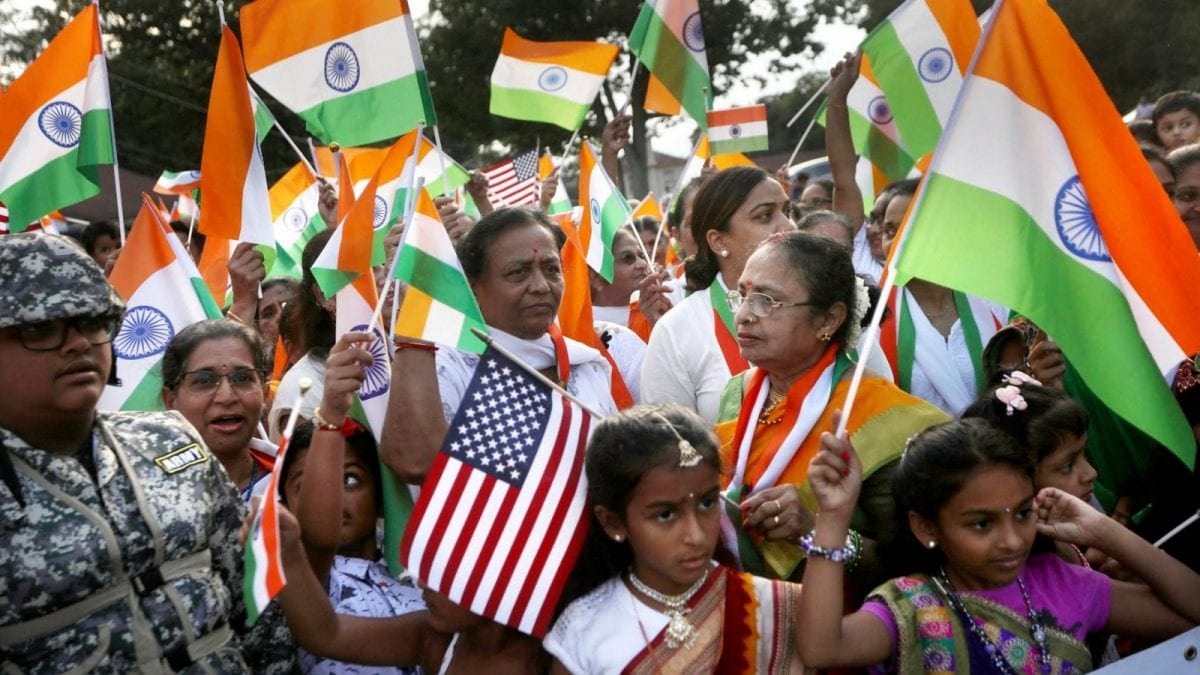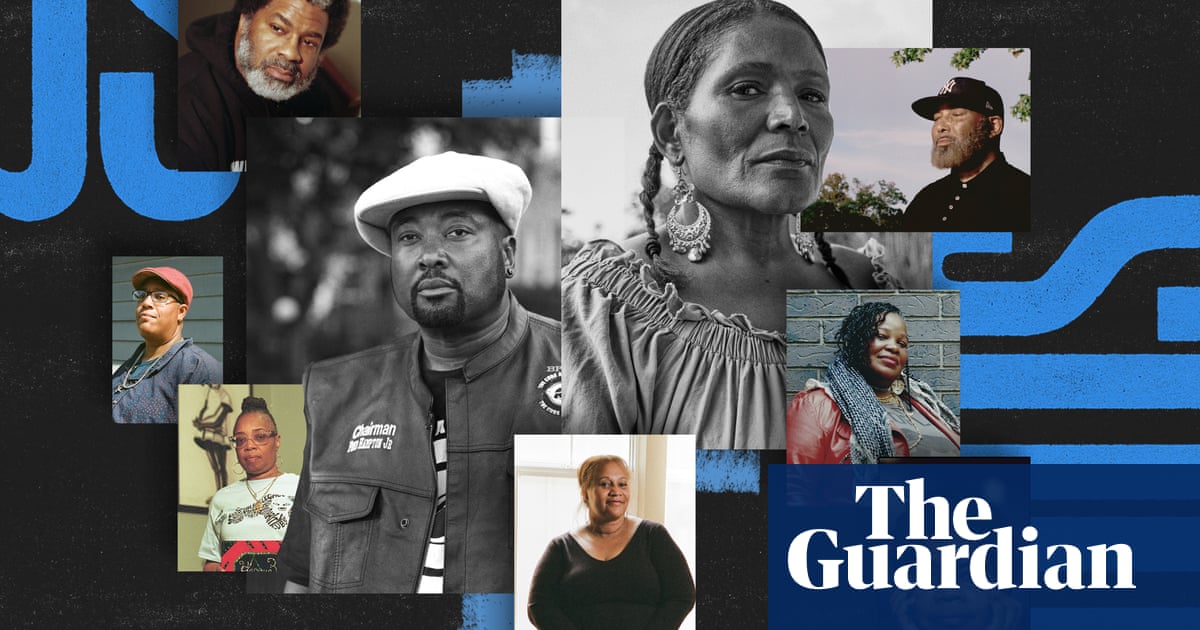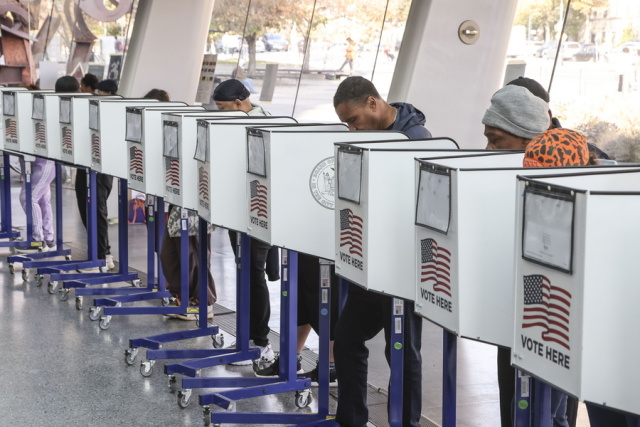- BlackVoter.Org
- Posts
- BlackVoter.Org
BlackVoter.Org


In a thought-provoking opinion piece, Jamelle Bouie discusses how Donald Trump and Elon Musk exhibit what he terms "Soros Derangement Syndrome," a phenomenon where powerful figures perceive their enemies as ubiquitous, shadowy forces. Bouie argues that Trump, amidst a turbulent political landscape, fervently believes that a coalition of elites aims to derail his agenda, fueling his aggressive tactics against Democratic machinery and fundraising platforms like ActBlue.
He accuses Musk of enabling this narrative by urging investigations into those who oppose their interests. The article also reflects on past rhetoric from the right, connecting it to a broader narrative of scapegoating perceived outsiders during protests against racial injustice.
Bouie’s analysis highlights how this mindset can be both a tool for power consolidation and a dangerous delusion, challenging readers to consider the real implications of these divisive tactics in the political arena.

In a dynamic exploration of Hindu Americans' evolving socio-political identity, Ratan Sharda highlights a significant shift in how this community engages with American politics. During his recent visit to the U.
S., he observed growing confidence among Hindu Americans, who are increasingly asserting their identities without compromising their roots.
Disenchanted by traditional political alignments, particularly during the Clinton-Trump elections, younger generations are now more vocal and politically active, advocating for a distinct Hindu agenda in American discourse. They exhibit a mix of affinities across party lines, engaging in constructive dialogue rather than confrontational divides.
Sharda notes their optimism about their place in America, transcending worries tied to their immigrant status, and fostering a deeper appreciation for both their heritage and their American identity. This transformation signals a new era of collaboration and confidence among Hindu Americans, shaping their future in the broader socio-political landscape.

In Boston, a surge in Black gun ownership has led to a growing demand for firearm safety training, spearheaded by instructors like Nolan Howard of 617 Defense. At his classes in Mattapan, first-time students—mostly African American—learn essential skills to navigate gun ownership, a crucial step toward obtaining a Massachusetts gun license.
Amid rising concerns for personal safety, particularly in the wake of events like George Floyd's murder, more Black individuals are choosing to arm themselves. Howard emphasizes self-reliance, stating, "You are your own first responder.
" With a history of discriminatory gun laws, many Black communities have traditionally shunned gun ownership, but attitudes are shifting. By empowering students through education and skills training, Howard and fellow instructors aim to redefine the narrative around Black gun owners, fostering a culture of responsible ownership and safety in their communities.

In a poignant exploration of legacy and resilience, The Guardian delves into the lives of the "Panther cubs," children of Black Panther Party leaders who navigated the tumultuous waters of activism and its repercussions. Born into a movement that promised radical change yet faced brutal government suppression, these individuals recount their unique childhoods filled with pride, loss, and a relentless quest for justice.
Through intimate interviews, themes of sacrifice emerge as they grapple with their parents’ revolutionary pursuits, often at the cost of familial connections. Despite the challenges, including parental imprisonment and external threats, the cubs find strength in community and shared experiences, shaping their identities as contemporary leaders.
As they confront present societal issues, such as systemic injustice and the fight for equality, the Panther cubs carry forward their parents' legacies with renewed purpose, illustrating that the spirit of revolution continues to inspire hope and action today.

In the powerful article "Black Kos: #BlackWomensHistory," Denise Oliver-Velez emphasizes the necessity of acknowledging and celebrating Black women's contributions to history. March, bridging Women’s and Black History Months, provides an ideal moment for reflection.
Oliver-Velez critiques the often-overlooked stories of Black women and challenges readers to educate themselves and share these narratives widely. She spotlights valuable resources, including the essential book “A Black Women’s History of the United States” and underscores the importance of recognizing the intersection of race and gender in historical contexts.
By urging both individuals and community members, particularly white feminists, to actively seek knowledge about Black women’s roles throughout history, Oliver-Velez advocates for an inclusive storytelling approach. Ultimately, she calls for a collective commitment to ensure that Black women’s voices continue to resonate and thrive, asserting, “We will not be erased.

In the thought-provoking article “Is ‘Wokeness’ Worth Saving?” from Sojourners, Josiah R. Daniels delves into the complexities of the term "woke" and its evolution.
Originally a badge of social consciousness, "wokeness" has been co-opted into performative allyship, often failing to address real social inequalities. Through a compelling interview with sociologist Musa al-Gharbi, the discussion explores how those in the "symbolic professions," like journalism and academia, wield social justice language more as a tool for social capital than as a means for enacting genuine change.
Al-Gharbi challenges readers, particularly those identifying as social justice advocates, to reflect introspectively rather than projecting critiques solely onto others. He argues that while "wokeness" seeks to elevate social issues, it often alienates the very communities it aims to support.
This nuanced conversation prompts urgent questions about efficacy, accountability, and the meaning of true allyship in the ongoing pursuit of justice.

In a bold move, President Donald Trump has signed an executive order mandating that voters provide proof of U.S.
citizenship. This order also restricts states from counting mail-in ballots that arrive after Election Day and threatens to cut federal funding for non-compliant states.
Trump's skepticism about electoral integrity continues, echoing his unfounded claims of voter fraud from the 2020 election. Voting rights advocates warn that this measure could disenfranchise millions, particularly among communities of color, as many Americans lack appropriate identification.
While Trump declares the need to "fix" the system, critics label the order as a dangerous attack on democracy. Legal challenges are anticipated as the nation grapples with the ongoing debate between tightening voting laws and ensuring easier access to the ballot.
As this contentious issue unfolds, the ramifications of Trump's order could significantly impact future elections in the U.S.

Jerry Butler, the legendary soul singer known as "the Ice Man," passed away at 85, leaving behind a profound legacy in music and politics. Born in Mississippi in 1939, Butler's smooth baritone captivated audiences from the moment he joined forces with Curtis Mayfield in the 1950s.
With over 55 chart entries, including iconic hits like "For Your Precious Love" and "Never Gonna Give You Up," his influence in soul music is undeniable. Transitioning into politics, Butler served as a Cook County Board Commissioner for over three decades while continuing to perform.
His autobiography, "Only The Strong Survive," reflects on his unique journey intertwining music and civic engagement. Despite battling Parkinson’s disease in recent years, Butler’s contributions to both the music scene and community leadership have left an indelible mark.
He is survived by his two sons, cherishing the memory of both a musical icon and a devoted public servant.